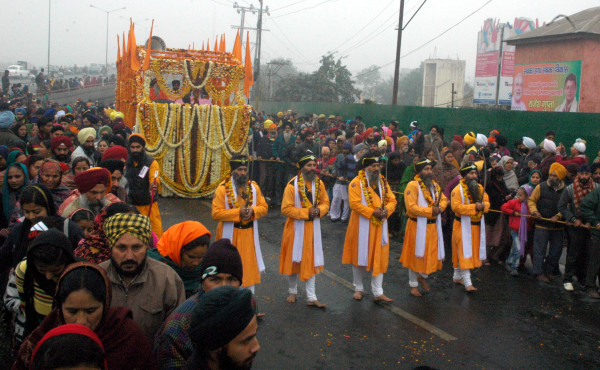There was an article on Countercurrents.org titled: Political Activism, Democracy And Kashmiri Youth, by Imran Khan (5 January, 2015) speaking about Kashmir youth and the place’s political field.
“… We all know that from 90s till now all the college and university unions in Kashmir are dysfunctional, so the platform for political involvement from educated youth seems missing. Such blockage of democratic channel makes the youth feel alienated, hopeless and push them to walls…”
The writer continues with: “History is witness to the fact that when genuine democracy is not given a chance it leads to more extreme reactions by the people, as in case of Kashmir the same youth took arms against India who had earlier taken an active part in 1987 rigged elections. Even the recent reactions from Kashmiri youth in the form of street protests and stone pelting can be understood as the reaction to not being allowed to enjoy their democratic right of forming unions, holding assemblies and holding peaceful protests.”
It is interesting in this light to see healthy demonstrations and processions in the religious sphere, as with the birth celebration of the Prophet of Islam, and the Sikh’s en-mass activities 6 January 2015 in the Nagar Kirtan procession. So it is unfortunate that there is an absence of opportunities for political activism, given the choked political space, ban on college and university unions, the monopoly by old leaders in almost all the major political parties of the state and the continuation of family politics.
As the writer points out in a democracy people there is the right to form unions, associations and groups, hold assemblies, protest peacefully, question government actions, express views without hurting others so it is worth asking why in what is often referred to as the world’s largest democracy (India) Kashmiri youth studying in different colleges and Universities in Kashmir are not allowed to enjoy such democratic rights.
Though people have participated in large numbers in the recently held elections in Kashmir and but considering it as a sign of youth getting involved in politics is definitely an extreme interpretation, considering the fact that handful of educated youth without political family background contested elections.
In the recent elections the politics of the elite in Kashmir is seen with former bureaucrats, and influential businessman, mostly getting the party mandate and almost no political party encouraging educated youth.
Genuine young educated leadership evolving out of student unions or social service or social work that is without political influence or which does not belong to the elite class was missing.
What was not missing was the political inheritance prevailing in the present political system, “…that is children of politicians apart from inheriting the genetic makeup from their parents continued to inherit political carriers as well.”
What disappointed the writer was that no political party talked about the necessity and importance of involving youth in politics and no political party promised taking initiatives in that regard, just as no political party talked about lifting the ban on student unions in colleges and universities.
See full story at:
http://www.countercurrents.org/khan050115.htm










